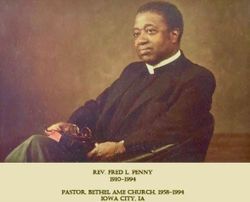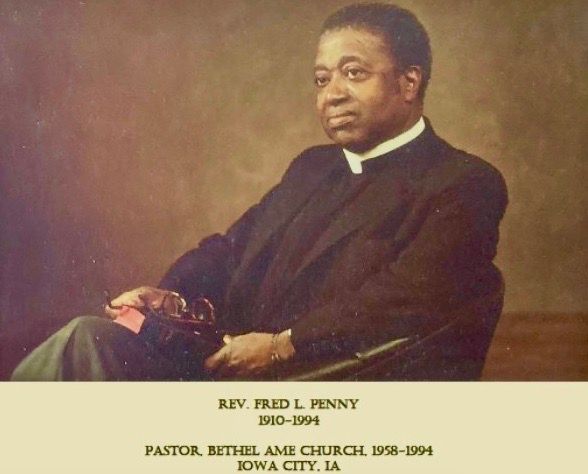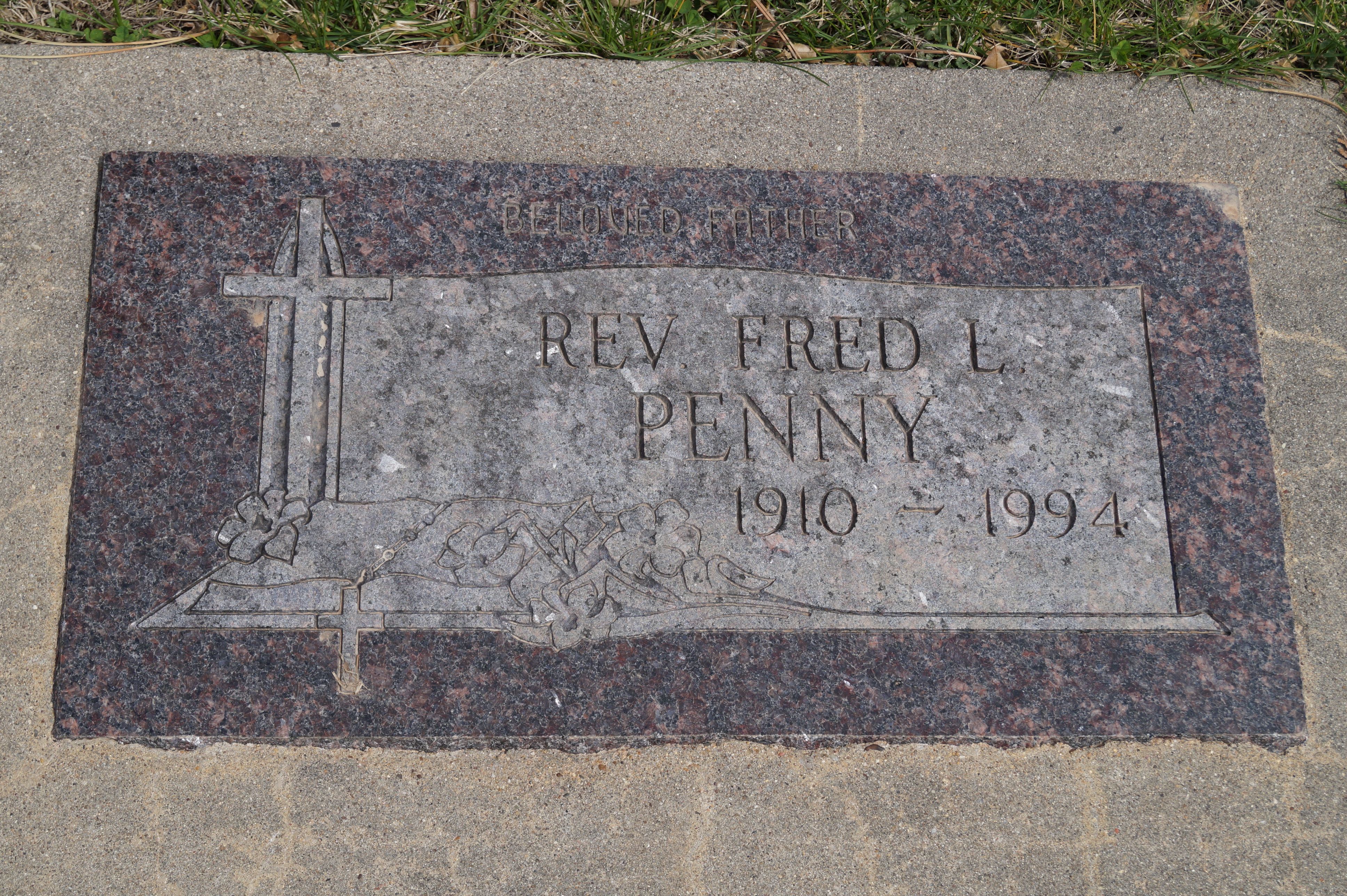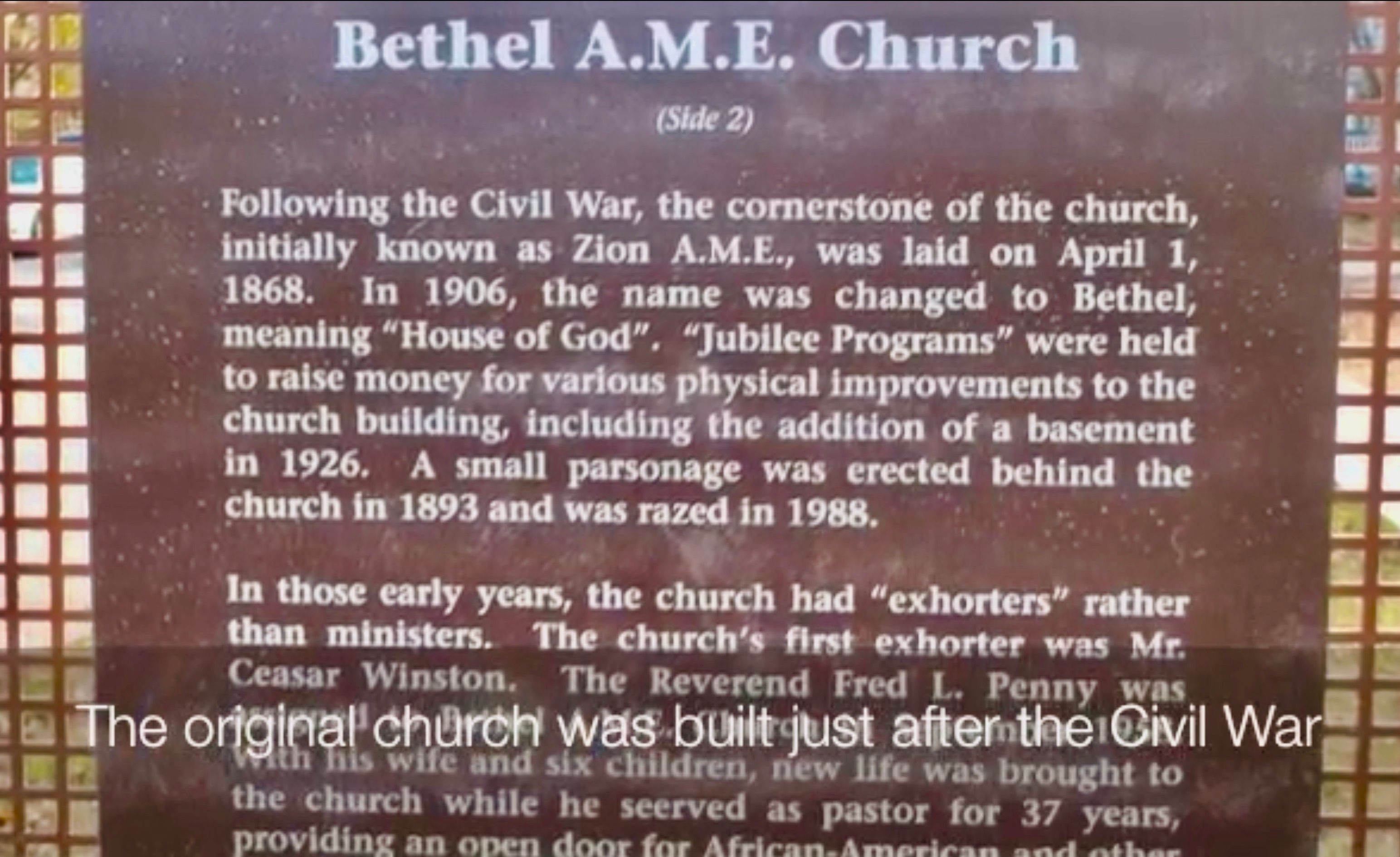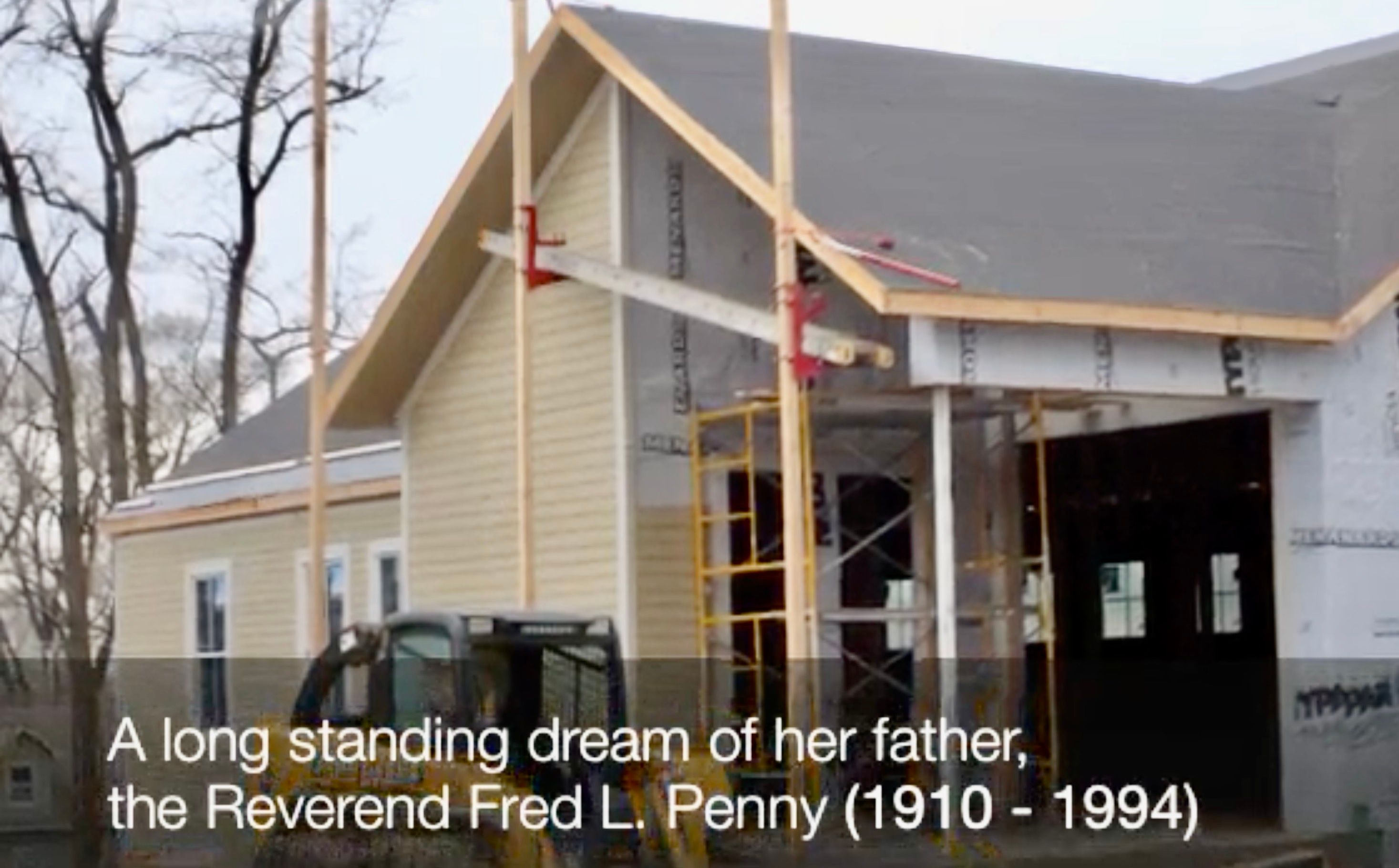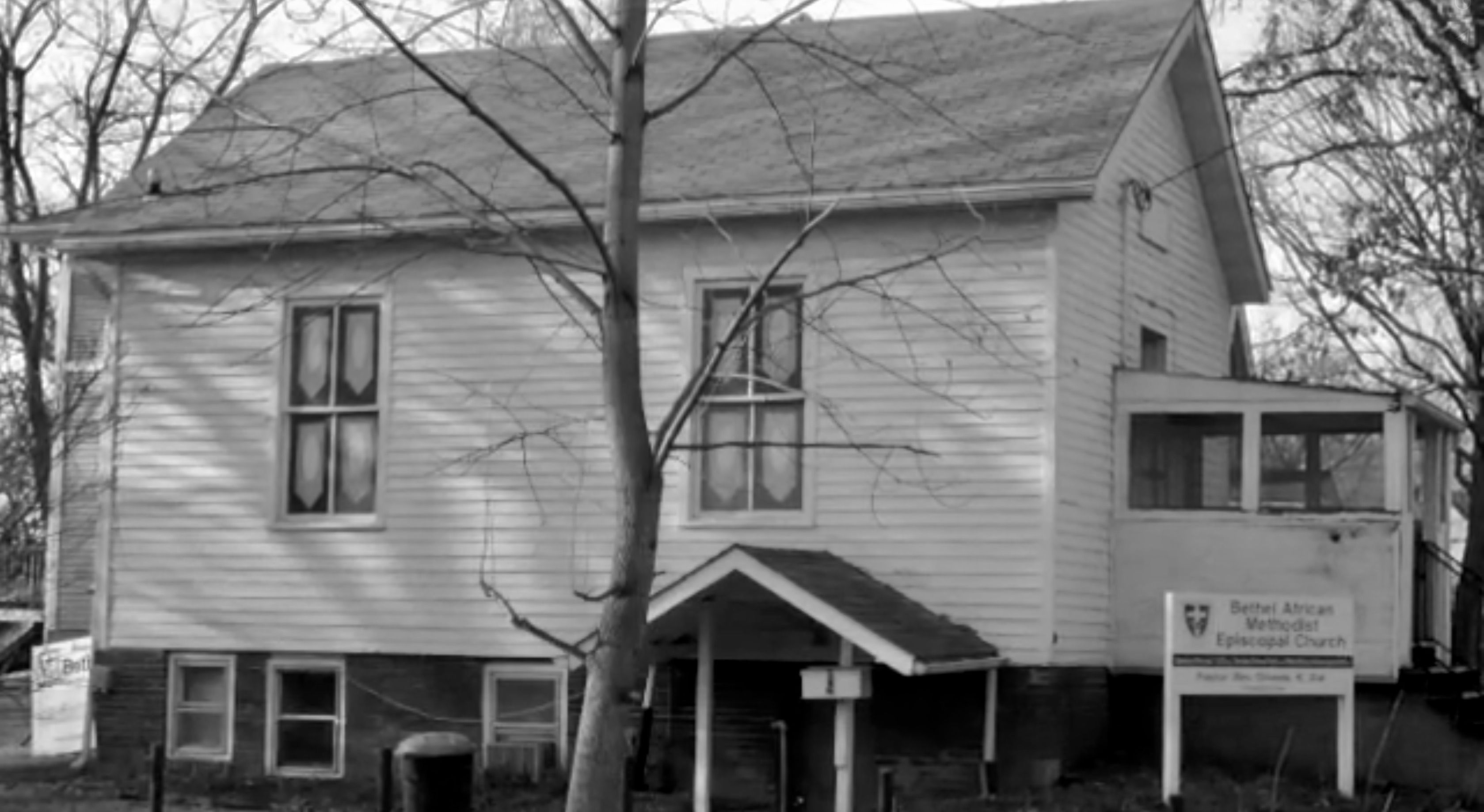Burial will begin at 10 a.m. Wednesday in Oakland Cemetery. Funeral services will begin at 3 p.m. Sunday at St. Andrew Presbyterian Church. The Rev. Lewis E. Grady Jr. will officiate.
Visitation will be from 3 to 8 p.m. today at George L. Gay Funeral Home. Memorial donations may be made to a fund in his name.
The Rev. Penny was born May 1, 1910, in Chester, Ill., to George Nicholas and Amanda (Lucas) Penny. He received his bachelor's degree from Shurtleff College, Alton, Ill.; his master's degree from the University of Illinois at Champaign-Urbana, and his doctorate degree from Payne Theological Seminary, Xenia, Ill.
He was the minister of AME churches in the Illinois communities of Chester, Grand Tower, Elkville and Sparta and the Iowa communities of Muscatine and Washington. He served for 36 years at the Bethel AME Church in Iowa City.
Survivors include three daughters, Dianna Penny of Iowa City, Ruth "Jane" Penny and Barbara Penny James and her husband Frederick John James, all of Oakland, Calif.; three sons, the Rev. Fred "Nick" of East Moline, Ill., John and his wife Elinor of Minneapolis, and Joseph and his wife Tami of Iowa City; two sisters, Lola "Ruth" Smith of Chicago, and Lucille Powell of Hammond, Ind.; and seven grandchildren.
(Source: Iowa City Press Citizen (Iowa City, Iowa) 27 Sep 1994, Tue pg. 16)
Rev. Penny rescued the Bethel A.M.E. church from disrepair and growing irrelevance; a key leader in the African-American community.
In 1958, when the Rev. Fred Penny came to town with his wife and six children, Iowa City wasn't the diverse, welcoming place that we think of today. But Penny was one of the people who made it so.
Before reaching Iowa City, Penny preached in Chester and Sparta, Ill., and in Muscatine. A year later the Bishop of his A.M.E. church sought a preacher for Iowa City, a place where the church itself (which dated from 1868) was in disrepair and the permanent congregation included one elderly woman. It was considered a most difficult assignment, and it would have been impossible for someone of less substance. The place had no water, no electricity, no furnace, warped wooden floors in the basement and was burdened with debt.
A gregarious man, Penny established relationships with students during the next two turbulent decades. Once the church was rehabilitated, he and his family provided meals for black students on Sunday after services and provided a forum for discussion of the issues of the day, large and small.
The Penny family became a surrogate family for many Iowa students, and Penny stood in for a number of fathers when it came to events like football's Dad's Day celebrations.
Through his leadership, the church grew to include a stable, bedrock congregation to go along with the more transient student membership. But Penny reached out beyond his own congregation to counsel and raise money for those in need. He was deeply involved in helping civil rights activists and raised bail money for those arrested in demonstrations.
Burial will begin at 10 a.m. Wednesday in Oakland Cemetery. Funeral services will begin at 3 p.m. Sunday at St. Andrew Presbyterian Church. The Rev. Lewis E. Grady Jr. will officiate.
Visitation will be from 3 to 8 p.m. today at George L. Gay Funeral Home. Memorial donations may be made to a fund in his name.
The Rev. Penny was born May 1, 1910, in Chester, Ill., to George Nicholas and Amanda (Lucas) Penny. He received his bachelor's degree from Shurtleff College, Alton, Ill.; his master's degree from the University of Illinois at Champaign-Urbana, and his doctorate degree from Payne Theological Seminary, Xenia, Ill.
He was the minister of AME churches in the Illinois communities of Chester, Grand Tower, Elkville and Sparta and the Iowa communities of Muscatine and Washington. He served for 36 years at the Bethel AME Church in Iowa City.
Survivors include three daughters, Dianna Penny of Iowa City, Ruth "Jane" Penny and Barbara Penny James and her husband Frederick John James, all of Oakland, Calif.; three sons, the Rev. Fred "Nick" of East Moline, Ill., John and his wife Elinor of Minneapolis, and Joseph and his wife Tami of Iowa City; two sisters, Lola "Ruth" Smith of Chicago, and Lucille Powell of Hammond, Ind.; and seven grandchildren.
(Source: Iowa City Press Citizen (Iowa City, Iowa) 27 Sep 1994, Tue pg. 16)
Rev. Penny rescued the Bethel A.M.E. church from disrepair and growing irrelevance; a key leader in the African-American community.
In 1958, when the Rev. Fred Penny came to town with his wife and six children, Iowa City wasn't the diverse, welcoming place that we think of today. But Penny was one of the people who made it so.
Before reaching Iowa City, Penny preached in Chester and Sparta, Ill., and in Muscatine. A year later the Bishop of his A.M.E. church sought a preacher for Iowa City, a place where the church itself (which dated from 1868) was in disrepair and the permanent congregation included one elderly woman. It was considered a most difficult assignment, and it would have been impossible for someone of less substance. The place had no water, no electricity, no furnace, warped wooden floors in the basement and was burdened with debt.
A gregarious man, Penny established relationships with students during the next two turbulent decades. Once the church was rehabilitated, he and his family provided meals for black students on Sunday after services and provided a forum for discussion of the issues of the day, large and small.
The Penny family became a surrogate family for many Iowa students, and Penny stood in for a number of fathers when it came to events like football's Dad's Day celebrations.
Through his leadership, the church grew to include a stable, bedrock congregation to go along with the more transient student membership. But Penny reached out beyond his own congregation to counsel and raise money for those in need. He was deeply involved in helping civil rights activists and raised bail money for those arrested in demonstrations.
Sponsored by Ancestry
Advertisement
Advertisement
